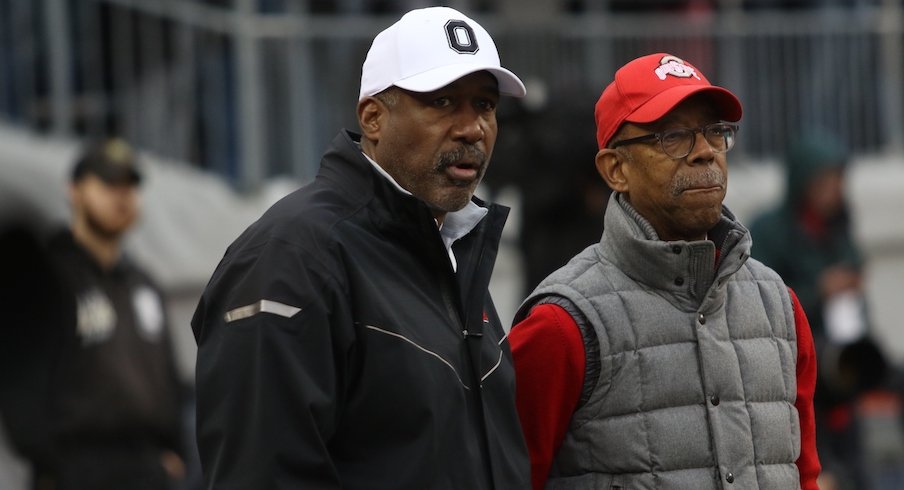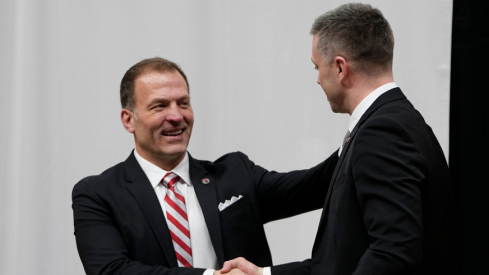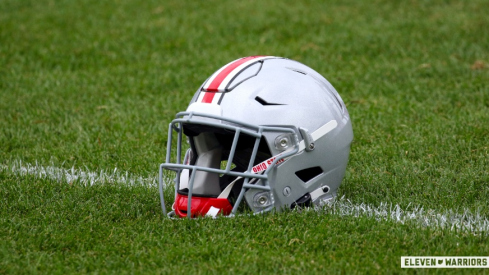The NCAA took the first step toward allowing student-athletes to benefit from their name, image and likeness on Tuesday, though it's still unclear exactly what will happen next.
After a working group co-chaired by Ohio State athletic director Gene Smith made a presentation to the NCAA's Board of Governors on Tuesday with recommendations for how the governing body should proceed forward on the issue of whether student-athletes should be able to profit from their name, image and likeness, the NCAA announced in a news release that it has “voted unanimously to permit students participating in athletics the opportunity to benefit from the use of their name, image and likeness in a manner consistent with the collegiate model.”
“We must embrace change to provide the best possible experience for college athletes,” said Ohio State president Michael Drake, who is also the chairman of the NCAA's Board of Governors. “Additional flexibility in this area can and must continue to support college sports as a part of higher education. This modernization for the future is a natural extension of the numerous steps NCAA members have taken in recent years to improve support for student-athletes, including full cost of attendance and guaranteed scholarships.”
What remains unclear at this point, however, is what exactly “the opportunity to benefit” and “a manner consistent with the collegiate model” means.
According to the NCAA's release, the governing body wants to "assure student-athletes are treated similarly to non-athlete students unless a compelling reason exists to differentiate," but "make clear the distinction between collegiate and professional opportunities" and will not allow student-athletes to be paid directly for their athletic performance or participation.
The NCAA wants to "maintain the priorities of education and the collegiate experience to provide opportunities for student-athlete success," and "reaffirm that student-athletes are students first and not employees of the university." The NCAA's release also states that modernization of policies should "ensure rules are transparent, focused and enforceable and facilitate fair and balanced competition," and "protect the recruiting environment and prohibit inducements to select, remain at, or transfer to a specific institution."
The Board of Governors has asked each NCAA division to immediately consider changes to its policies on name, image and likeness benefits, and to implement those changes no later than January 2021.
“As a national governing body, the NCAA is uniquely positioned to modify its rules to ensure fairness and a level playing field for student-athletes,” NCAA president Mark Emmert said in the release. “The board’s action today creates a path to enhance opportunities for student-athletes while ensuring they compete against students and not professionals.”
Skepticism remains, though, on whether the NCAA will actually implement policies that allow student-athletes to profit. The National Collegiate Players Association said in a statement that it believes the NCAA's definition of benefits will not include direct compensation for players.
The @NCPANOW says the NCAA's statement is "another attempt at stalling on this issue" of allowing college athletes to benefit from their names, images & likenesses. Says it isn't a green light to receive "compensation."
— Darren Heitner (@DarrenHeitner) October 29, 2019
Encourages states to keep working on passing legislation. pic.twitter.com/yNjXEnfl2e
The working group co-chaired by Smith first convened in May and will continue to work together through April to gather feedback on how the NCAA should proceed forward. From then, the plan was for the working group to present its findings to the NCAA in October, but the pressure for the NCAA to change its policies ratcheted up last month, when the state of California passed the Fair Pay to Play Act, which will allow student-athletes in that state to begin profiting off their name, image and likeness in 2023.
In a press conference at Ohio State on Oct. 1, Smith told reporters that he believed it was time for the NCAA to consider making changes, but also that it is important for all schools and states to be playing by the same rules and that national regulation is necessary to ensure that's the case.
“We can’t have a situation where we have schools and/or states with different rules for an organization that’s going to compete together,” Smith said.
Drake told Eleven Warriors in September that he believes it is important for college sports to remain differentiated from professional sports on the issue of directly paying athletes for play.
“So we have the collegiate model of sport and the professional model of sport, and I think that my colleagues and I are devoted to keeping those appropriately distinct, and protecting those things which make college athletics so special to so many people,” Drake said.


